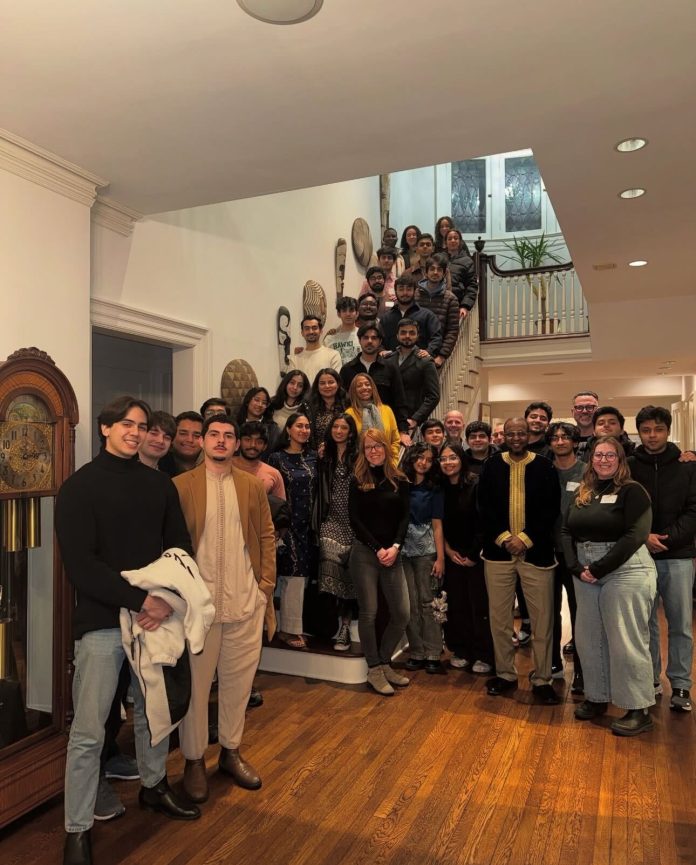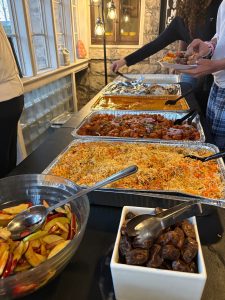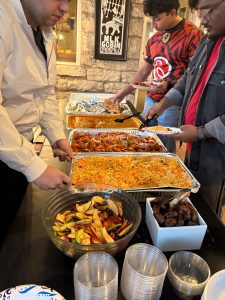
Ramadan began on March 1st this year in the United States, after millions of Muslims sighted the moon on February 28th.
While it has different names in different parts of the world—such as Ramzan in South Asia, and Ramadan in the Middle East—it is universally observed as a month of “sawm” (fasting) and “salah” (prayer). It is believed that this was the month in which the Quran was revealed to Prophet Muhammad—marking one of the most crucial events in the Islamic calendar.
The Islamic calendar follows a lunar system, meaning months begin with the sighting of the new moon. The significance of moon sighting in Islam comes from the tradition of Prophet Muhammad who instructed Muslims to begin and end fasting based on the sighting of the crescent moon.
Ramadan holds deep significance in the lives of millions, and rightly so—it is a time of family, faith and togetherness. Imagine being a child, waking before dawn to a table filled with delicious food, rubbing the sleep from your eyes as you share suhoor—or sehri—with loved ones (morning meal). Then, you find yourself drifting back to sleep, comforted by the quiet hum of prayer in the background. Evenings are just as magical—tagging along with your parents to the masjid (mosque), listening to the soothing rhythm of na’at (poetry verses), reading namaz (prayer) together and feeling the warmth of community as people gather for iftar (fast-breaking evening meal).
To imagine what it must have been like, we talked to people on campus about their memories of Ramadan back home. Marwa Aarab ‘26 said, “I would be at my Grandma’s house for most of Ramadan... Everyone would cook a dish, and we would break our fast together.” She adds, “After taraweeh (night prayer) we often stay up and watch our favourite movies.” Umer Hammad ‘28 also shared with us the enriching experience of trailing his father to the mosque for prayers, saying, “I used to go with my dad for prayers—it was a routine I really enjoyed.” What students seem to miss the most are the shared experiences—the laughter over late-night chai, whispered prayers before breaking the fast, and the spectacle of delicious home-cooked meals such as Haleem, Biryani, Shorba, Tanjia, Fattoush and Rooh Afza.


For those celebrating away from home, this sacred month can feel extremely different. The environment lacks the familiar sounds, scents and staples, replaced instead by the urgency of schoolwork, the quietness of a dorm room and the strangeness of a new place. Balancing early morning suhoor meals, long hours without food or water and evening iftars alongside a demanding academic schedule can be challenging. For instance, dining options at Hoover initially fell short of the generally accepted iftar menu, and no Sehri boxes were available at the C-Store in the first few days. Yet, small moments of kindness—such as thoughtful emails from professors and staff offering flexibility—helped ease the burden. At the same time, initiatives by the Muslim Student Association (MSA) and the community iftar at President White’s office were immensely helpful in fostering a sense of belonging.
Despite this, nothing can replace home.
In a small town in the U.S., how can the campus community offer support? Small gestures can have a meaningful impact. Friends can join iftar gatherings–even if they aren’t fasting–or adjust study sessions to align with fasting hours. Sharing a meal, saving a snack for later or simply checking in can help Muslim students feel valued and supported.
At its core, Ramzan is about community. While Greencastle may not have the same energy as home, the support of friends, faculty and small moments of kindness can make all the difference—reminding us that the spirit of the month is not just where we are, but who we share it with. Ramadan Mubarak!
